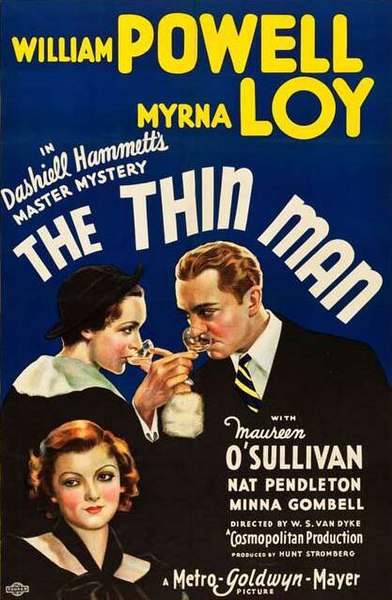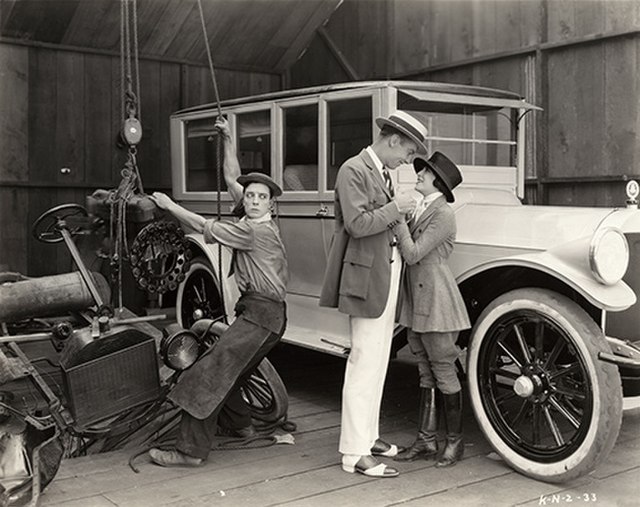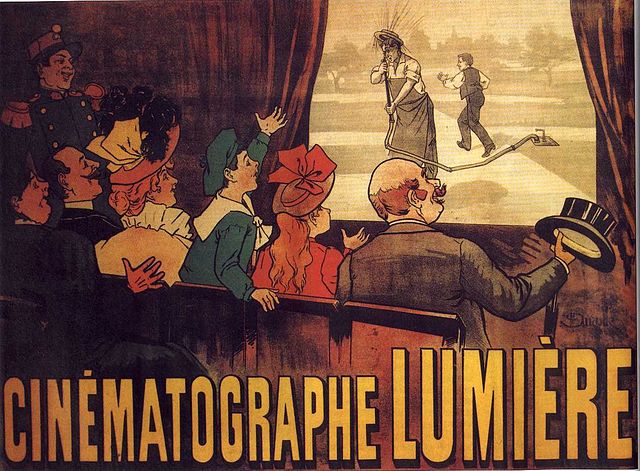The Thin Man is a 1934 American pre-Code comedy-mystery film directed by W. S. Van Dyke and based on the 1934 novel of the same name by Dashiell Hammett. The film stars William Powell and Myrna Loy as Nick and Nora Charles, a leisure-class couple who enjoy copious drinking and flirtatious banter. Nick is a retired private detective who left his very successful career when he married Nora, a wealthy heiress accustomed to high society. Their wire-haired fox terrier Asta was played by canine actor Skippy. In 1997, the film was added to the United States National Film Registry having been deemed "culturally, historically, or aesthetically significant".
Theatrical release poster
William Powell, Myrna Loy and Skippy (Asta) in The Thin Man
Lobby card
Myrna Loy, William Powell and Skippy
A comedy film is a film genre that emphasizes humor. These films are designed to amuse audiences and make them laugh. Films in this genre typically have a happy ending, with dark comedy being an exception to this rule. Comedy is one of the oldest genres in film, and it is derived from classical comedy in theatre. Some of the earliest silent films were slapstick comedies, which often relied on visual depictions, such as sight gags and pratfalls, so they could be enjoyed without requiring sound. To provide drama and excitement to silent movies, live music was played in sync with the action on the screen, on pianos, organs, and other instruments. When sound films became more prevalent during the 1920s, comedy films grew in popularity, as laughter could result from both burlesque situations but also from humorous dialogue.
Comedic actor Buster Keaton (left) struggling with a wrecked Model T car in The Blacksmith, a 1922 short comedy film
The film poster for the first comedy film, L'Arroseur Arrosé (1895)






